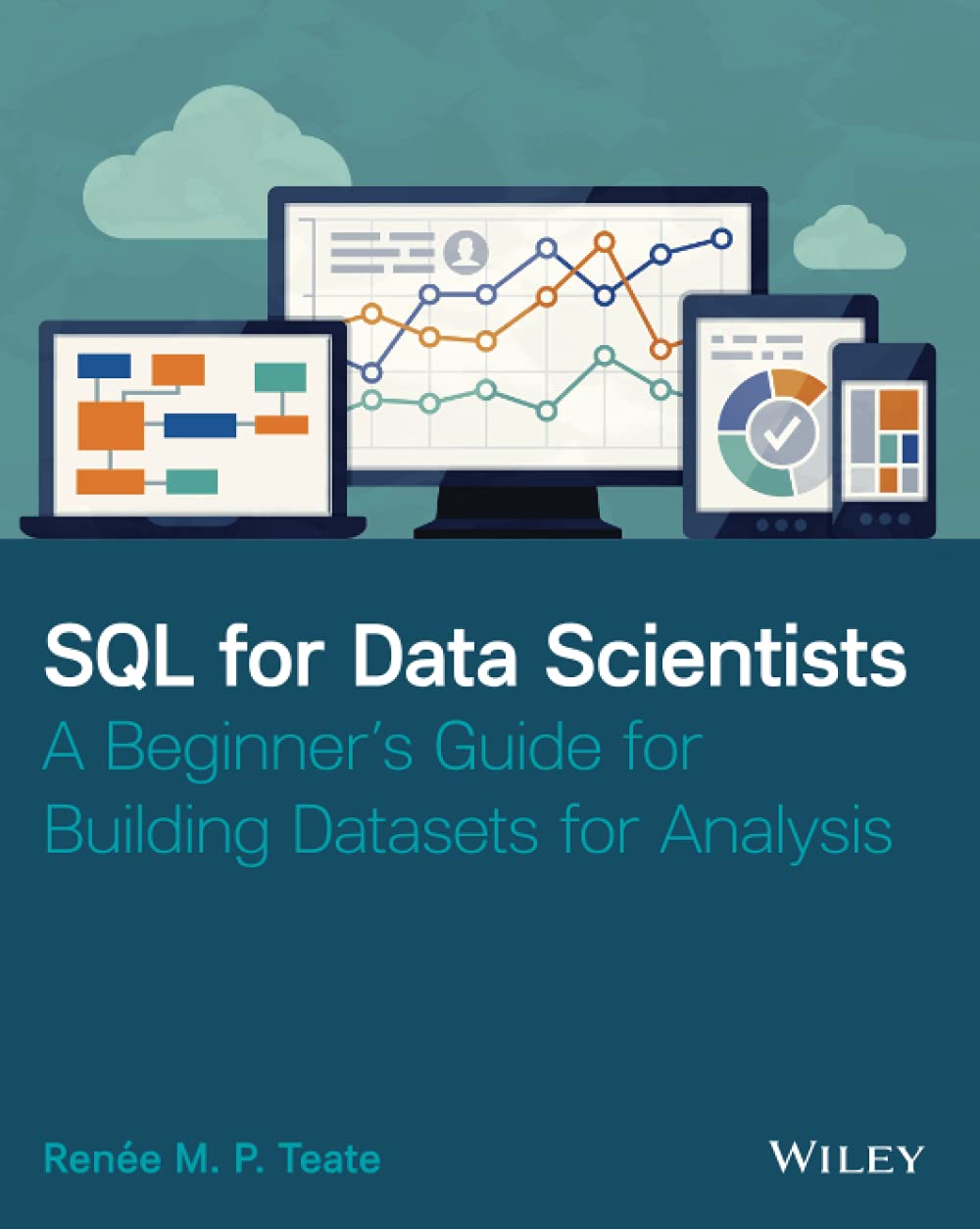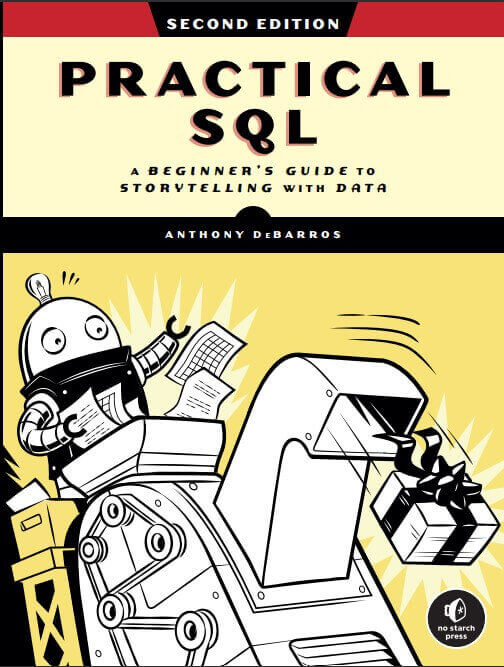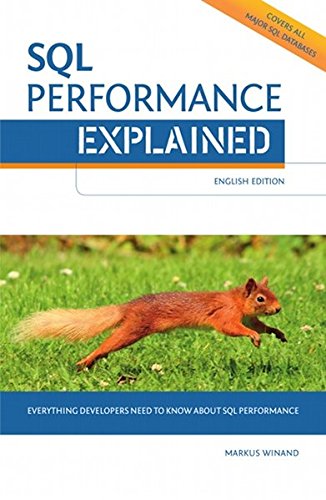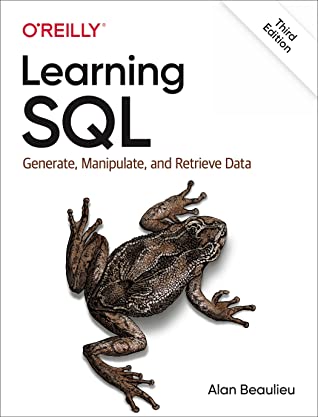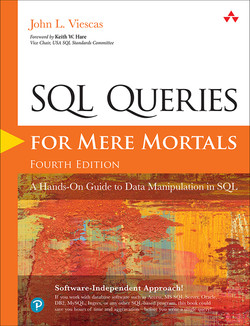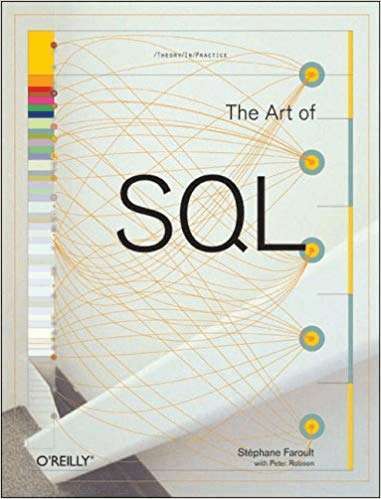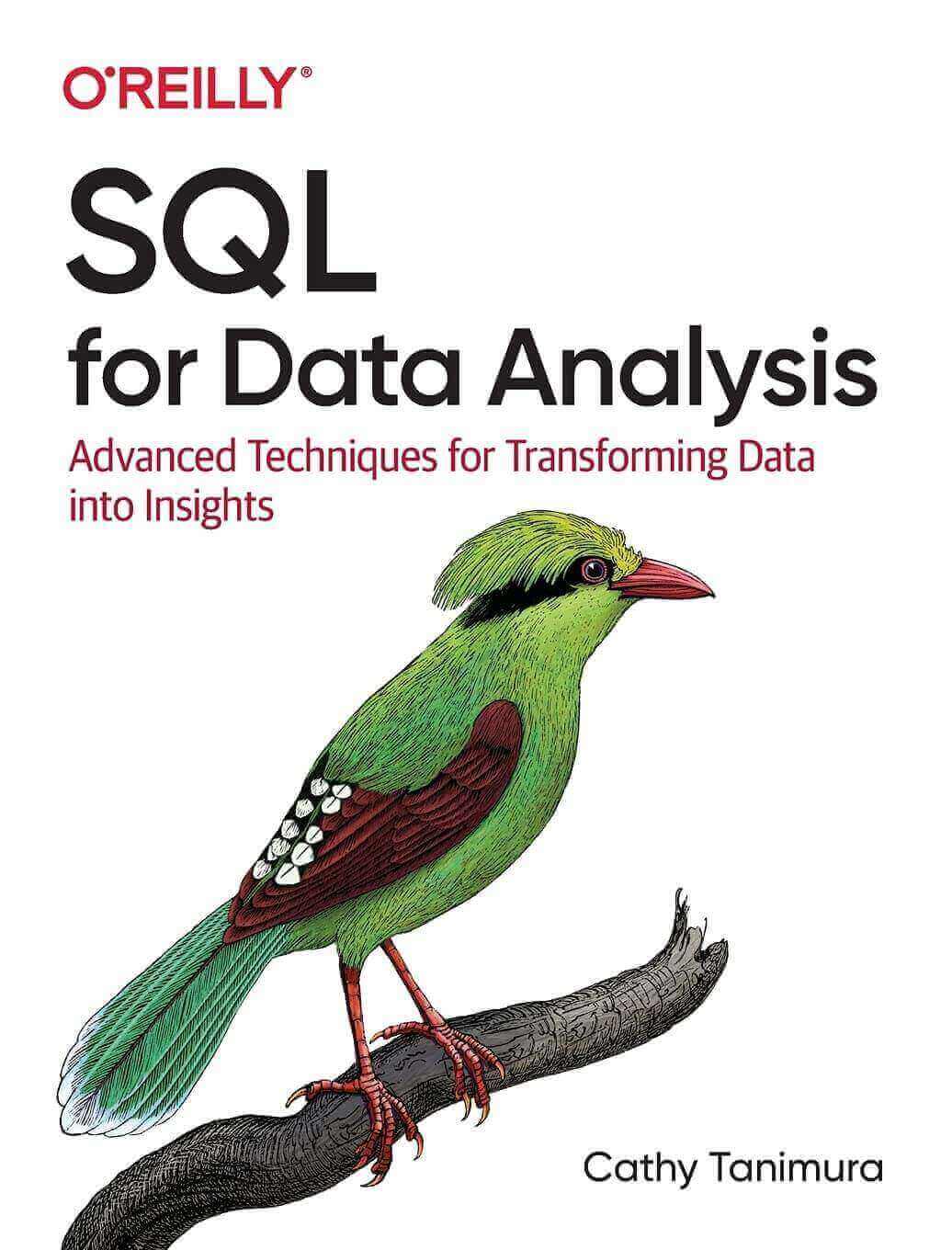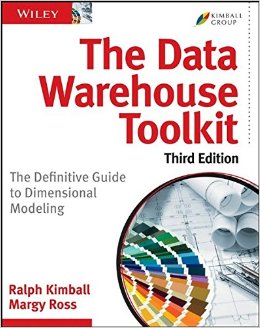Take Your SQL Skills To The Next Level With These Popular SQL Books

Business leaders, developers, data heads, and tech enthusiasts – it’s time to make some room on your business intelligence bookshelf because once again, datapine has new books for you to add. We have already given you our top data visualization books, top business intelligence books, and best data analytics books. Now it’s time to ponder over our hand-picked list of the 20 best SQL learning books available today.
Structured Query Language (SQL) is the most popular language utilized to create, access, manipulate, query, and manage databases. This particular code, or language, was developed in the 1970s, and since then, it has become the standard for communicating with various relational database management systems (RDMS), including the likes of Oracle, Microsoft SQL Server, Sybase, PostgreSQL, Informix, and MySQL.
Whether you’re a programmer, a data analyst, or a business intelligence end user, knowing the best way to learn SQL is invaluable to anyone dealing with or handling digital data. SQL isn’t just for database administrators (DBAs).
Learning SQL is incredibly useful for querying databases, operating online BI (Business Intelligence) tools, and leveraging the more complex features of BI platforms. Plus, knowing the best way to learn SQL is beneficial even for those who don’t deal directly with a database: Business Intelligence software, such as datapine, offers intuitive drag-and-drop interfaces, allowing for superior data querying without any SQL knowledge. That said, knowing the SQL basics will help you understand your organization’s data and better generate actionable insights.
To help you on your journey, here is our personally curated list of 20 of the best SQL server books in existence. Explore our rundown of SQL books and either begin or continue your journey today. But before we do, let’s explore some interesting SQL facts:
- SQL assists in the structuring and management of information in a database, in addition to conducting searches for information using structures. Some of these 'structures' may include putting all the information; for instance, a structure could be about cars, placing them into tables that consist of makes, models, year of manufacture, and color. With a MySQL dashboard builder, for example, you can connect all the data with a few clicks.
- SQL can perform a multitude of complex functions in a fraction of a second.
- A host of notable brands and retailers with colossal inventories and multiple site pages use SQL to enhance their site's structure functionality and MySQL reporting processes. These businesses include eBay, Autotrader, and Amazon.
- Despite being around for some time, the effective and invaluable nature of SQL means it’s still amongst the world’s most sought-after skills, with companies across industries looking for SQL experts to help them with some of their most important business initiatives.
Feeling inspired? Let’s look at our 20 best books for SQL.
SQL Books For Beginners
Each of these hand-picked books on SQL for beginners is strikingly different yet equally invaluable in its own way. If you’re looking to get a solid grip on the fundamentals of Structured Query Language as well as its functionality in a real-world context, these are the resources you need.
1) “Sams Teach Yourself SQL in 10 Minutes” By Ben Forta
You can’t have a list of the top SQL books without including Ben Forta’s best-selling SQL guide book, “Sams Teach Yourself SQL in 10 Minutes.” Out of all the SQL books for beginners, this is a must-read. Ben Forta is an expert trainer and popular author, and his book is perhaps the best way to learn SQL for beginners. For this project, he looked at the existing SQL literature and saw a need for a SQL book not geared towards database analysts (DBAs). This book fills that need. As Forta put it, “The emphasis is on getting stuff done and getting it done quickly, helping you be productive as quickly as possible in whatever tool or environment you use.”
In other words, “Sams Teach Yourself SQL in 10 Minutes” teaches the parts of SQL you need to know: starting with simple data retrieval and quickly going on to more complex topics including the use of SQL joins, subqueries, stored procedures, cursors, triggers, and table constraints. The best part is you’ll learn SQL methodically, systematically, and simply – in 22 short, quick lessons. Each lesson takes only 10 minutes or less to complete. Make sure you have a handle on the basics and check out this book. You can also use
2) “SQL for Data Scientists: A Beginner's Guide for Building Datasets for Analysis” by Rénee M. P. Teate
Our next book is dedicated to anyone who wants to start a career as a data scientist and is looking to get all the knowledge and skills in a way that is accessible and well-structured. Recently published in 2021, “SQL for Data Scientists” by author and experienced data scientist, Rénee Teate, teaches its readers all the skills that data scientists use the most in their daily work. Going through topics such as how to construct datasets for exploration, analysis, and machine learning, to tips on how to design and develop codes using SQL for data analysis, this book serves as the perfect beginner's guide to the topic.
What makes this book different from others on the list, is that it doesn’t cover SQL as a broad term, instead, it provides a set of skills that you will actually need to use if you are working as a data scientist. What readers enjoy the most about this piece, is that it is full of examples and it works perfectly for beginners and advanced SQL users, which earns it a 4.7 stars rating on Amazon so far. Definitely, one of the best books for SQL beginners!
3) “Practical SQL: A Beginner's Guide to Storytelling with Data” by Anthony DeBarros
“Analyze data as a pro, even if you are a beginner” is the premise of the book by journalist and data scientist, Anthony DeBarros. “Practical SQL” offers its readers an approachable guide to learning all there is to know about SQL, with a focus on how to use this programming language to find the stories hiding behind your data. Through a mix of real-world examples, techniques, and tools, readers are expected to learn how to:
- Create databases and related tables using your own data
- Aggregate, sort, and filter data to find patterns
- Use functions for basic math and complex statistical operations
- Identify errors in data and clean them up
- Analyze spatial data with a geographic information system (PostGIS)
- Create advanced queries and automate tasks
Originally published in 2018, the book has a second edition that was released in January of 2022. The new version includes details on the latest SQL features such as techniques for wrangling data, as well as two new chapters, one dedicated to setting up your own system, and another for using PostgreSQL and JSON.
4) “SQL Performance Explained” by Markus Winand
Moving on with our list of best SQL books for beginners, we have “SQL Performance Explained” by author Markus Winand. This piece, published in 2012, offers a step-to-step guide on everything related to SQL. It covers all major SQL databases such as Oracle, PostgreSQL, MySQL, and more, without focusing too much on a specific product.
Readers who pick up this book can expect to find a textbook containing every relevant detail a developer should know about SQL. Amongst the various topics that it covers, ”SQL Performance Explained” offers knowledge into:
- Correctly applying SQL functions
- Using indexes correctly
- How to use LIKE queries efficiently
- How to optimize join operations
- Data clustering
- Database scalability
When looking at reviews from this book, readers really appreciate the focus and knowledge it provides regarding indexes as well as the differentiation between different SQL databases. Here is an excerpt from a review on Amazon, where the book is rated 4.7 stars: “This book has been amazing, it has helped me truly understand the make-up of indexes and how to properly think about them.”
5) “Learning SQL” By Alan Beaulieu
Alan Beaulieu’s “Learning SQL” is another of our top database books for beginners. With its real-world style of writing, this introductory guide will get you up and running with SQL quickly. With this book, who recently published its third edition in 2020, you will:
- Move quickly through SQL basics and learn several advanced features
- Use SQL data statements to generate, manipulate and retrieve data
- Create database objects, such as tables, indexes, and constraints, using SQL schema statements
- Learn how data sets interact with queries and understand the importance of subqueries
Whether you need to write database applications, perform administrative tasks or utilize a SQL report builder, this book is amongst the best books to learn SQL.
6) “SQL: QuickStart Guide – The Simplified Beginner’s Guide To SQL” By Clydebank Technology
If you head over to Amazon you will see great reviews for one of our favorite SQL guides for beginners. The “SQL: QuickStart Guide” strives to show readers how SQL actually works.
Through multiple step-by-step examples, the authors take readers from knowing absolutely nothing about SQL to being able to quickly retrieve and analyze data from multiple tables.
Moreover, you will find many practical examples of common mistakes to avoid that beginners are prone to, making this one of the best books to learn SQL.
7) “Head First SQL” By Lynn Beighley
Lynn Beighley knows how to write about technical topics in an approachable way. Her book, “Head First SQL,” does just this. Its visually rich format is designed for the way your brain works, not in a text-heavy approach that puts you to sleep.
This SQL beginners book takes a fun approach to show the fundamentals of SQL and how to really take advantage of the language. Whether you are brushing up on the basics or starting from scratch, it is really the ‘best book for SQL’. Oh, and she wrote another great book about PHP and MySQL, too.
8) “SQL Queries for Mere Mortals” By John L. Viescas and Michael J. Hernandez
With “SQL Queries for Mere Mortals” industry experts John L. Viescas and Michael J. Hernandez wrote the clearest and simplest tutorials on writing effective SQL queries. This hands-on classic guides readers through creating reliable queries for virtually any modern SQL-based database, which you can also use as a means to build your own SQL dashboard.
The authors demystify all aspects of SQL query writing from simple data selection and filtering to joining multiple tables and modifying sets of data. Whether you’re a DBA, developer, user, or student, this is perhaps the best book for SQL if you’re looking to build a solid all-around knowledge base you can build on.
9) "The Art of SQL" by Stéphane Faroult and Peter Robson
The seventh on our rundown of the best books on SQL comes in the form of this concise yet insightful guide from SQL experts Stephane Faroult and Peter Robson. A cohesive collaboration between two of SQL’s most prolific voices, this SQL query book offers a real insight into best coding practices and processes.
Focused on the art of developing the kind of SQL code that works the first time (rather than ironing out any potentially detrimental mistakes and bugs later on), this is a ‘best book on SQL’ for any budding SQL enthusiast. Based on learning a craft rather than gaining a ‘quick fix’, The Art of SQL is a manual for those looking for long-term success with one of the world’s most invaluable processing languages.
10) "SQL Practice Problems: 57 beginning, intermediate, and advanced challenges for you to solve using a 'learn-by-doing'” approach by Sylvia Moestl Vasilik
This practical resource is based on the notion that the ability to write Structured Query Language and work proficiently with data is currently one of the most sought-after job skills. Here, author Sylvia Moestl Vasilik showcases a number of SQL Practice Problems that you will often come across in a real-world context, one of the best SQL books on our list – and one of the most practical.
For those looking to utilize SQL in an existing or future job role, this 'learn-and-do' guide is digestible, insightful, fun, rewarding, and practical (as mentioned). Broken down into a host of priceless real-world situations and scenarios, this amazing beginner's book on SQL offers background into the language's syntax, set-up instructions, a sample database, and 57 real-world problems and challenges that will help you to grasp the foundations of SQ, taking your skill set to an entirely new level. An essential addition to any budding SQL developer's reading list.
11) "Data Analysis Using SQL and Excel, 2nd Edition" by Gordon S. Linoff
For those working closely with complex data analytics, Data Analysis Using SQL and Excel, this 2nd Edition by information expert Gordon S. Linoff will make an essential addition to your educational booklist - and is one of the best books on SQL on our list, hands down.
One of the best beginners’ books on SQL for the analytical mindset, this masterful creation demonstrates how to leverage the two most vital tools for data query and analysis – SQL and Excel – to perform comprehensive data analysis without the need for a sophisticated and expensive data mining tool or application. Drilling down into the 'where' and 'why' of SQL, Excel, and data mining, this book is informational and easy to follow, making it a winning addition to our list of the best SQL books.
Explore our free trial and benefit from fast & efficient data quering today!
Best Advanced SQL Books
Now that we've focused on the best books for learning SQL for novices, let's move into advanced territory with the next five on our list.
If you already have the basics down, there are several excellent books out there to take your SQL to the next level. If you are at this stage of your journey, it is important to look into the literature that fits your specific relational database management system (RDMS).
While numerous core concepts transfer from one platform to another, there will be differences between Oracle, MySQL, SQL Server, etc. It's worth noting that some of the following SQL books are not RDMS-specific.
12) "T-SQL Fundamentals Third Edition" by Itzik Ben-Gunn
For experienced learners looking to broaden their skillset within the field, this is one of the best books for SQL on the planet. Once you’ve mastered the art of SQL and you’re able to apply your newfound knowledge in a range of practical situations, learning key elements of T-SQL is the next logical step.
Specializing in Microsoft SQL Server and Azure SQL, this platform-agnostic guide is well-balanced, easy to follow, and serves up a host of challenges, and solutions, that will sharpen your skills while allowing you to look at your programming efforts through fresh eyes.
13) "SQL for Data Analysis: Advanced Techniques for Transforming Data Into Insights" by Cathy Tanimura
Our next advanced SQL book was recently published in October 2021 by author Cathy Tanimura, a data analyst with 20 years of experience in the field. In short words, “SQL For Data Analysis” is a practical guide for analysts and developers who want to find new and improved ways to approach the world of SQL.
With insights into both common and advanced functions such as joins, window functions, subqueries, and regular expressions, readers will be able to accomplish their goals faster with an innovative approach. Since its publication, the piece has received positive reviews from its readers. Here is an excerpt from one: “I use SQL daily, and this was a great reference towards using advanced SQL to get analytics insights. Would highly recommend for SQL experts.”
14) “High-Performance MySQL: Optimization, Backups, and Replication” by Baron Schwartz, Peter Zaitsev, and Vladimir Tkachenko
Written by experts in the field, this book is specifically for anyone looking to extract the maximum potential out of using MySQL. This guide offers knowledge of advanced techniques such as designing schemas, indexes, and queries, to help readers in tuning up their MySQL server, operating system, and hardware to the fullest. Definitely a must-read for anyone interested in excelling in MySQL.
The 3rd edition of this publication is a fully revised and expanded version that offers deeper coverage of previously explained areas as well as new topics that reflect the advances of MySQL, including the new features in the 5.5 version such as stored procedures, partitioned databases, triggers, and views. The 3rd edition also offers a new chapter related to MySQL on the cloud, which is something that readers have especially appreciated.
15) "SQL Antipatterns: Avoiding the Pitfalls of Database Programming (Pragmatic Programmers)" by Bill Karwin
An artist in his field, Bill Karwin has assisted countless people in writing better SQL and creating stronger relational databases, and now it's your turn to benefit from his world-class knowledge.
SQL Antipatterns: Avoiding the Pitfalls of Database Programming is unique in that it focuses on common SQL programming errors, offering a clear-cut insight into avoiding such mishaps or correcting them should they occur.
Broken down into four practical chapters, this resource is perhaps the best way to learn SQL at a more advanced level. It's something you should have on your desk for reference at all times and the best book on SQL if you want to step outside the box while fine-tuning your technical skills.
16) “SQL Cookbook” By Anthony Molinaro
The “SQL Cookbook” is for taking your SQL skills to the next level. If you know the rudiments of the SQL query language, yet you feel you aren’t taking full advantage of SQL’s expressive power, this book is for you.
In the “SQL Cookbook,” experienced SQL developer Anthony Molinaro shares his favorite SQL techniques and features.
Written in O’Reilly’s popular Problem / Solution / Discussion style, “The SQL Cookbook” moves quickly from problem to solution, saving you time each step of the way.
17) “SQL Database Programming” (2015 Edition) By Chris Fehily
“SQL Database Programming” could also have been listed as an SQL book for beginners. This learning SQL book does a great job of covering the basics. However, it also goes far beyond that. The book is great for various end users, analysts, data scientists, and app developers.
Readers will find general concepts, practical answers, and clear explanations of what the various SQL statements can do.
The book covers Oracle, Microsoft SQL Server, IBM DB2, MySQL, PostgreSQL, and Microsoft Access. The all-encompassing nature of this book makes it a must for a data bookshelf.
18) “The Data Warehouse Toolkit” By Ralph Kimball and Margy Ross
Ralph Kimball and Margy Ross co-authored this third edition of Kimball’s classic guide to dimensional modeling. This book provides a complete collection of modeling techniques, beginning with fundamentals and gradually progressing through increasingly complex real-world case studies. It is a must-read for understanding data warehouse design. While this book is not specifically a SQL book, it will take your SQL understanding to the next level.
You don’t even have to know any SQL to appreciate this book. BI Consultant Dustin Ryan listed “The Data Warehouse Toolkit” as one of his top four books for the Business Intelligence Professional. He writes in regards to the book, “In my opinion, this should be required reading for everyone working in the business intelligence field.”
The best book on SQL if you’re looking for ways to sharpen your existing skills in a real-world context.
19) "Effective SQL: 61 Specific Ways to Write Better SQL" by John L. Viescas, Douglas J. Steele, and Ben J. Clothier
For anyone with basic proficiency in writing structured query language, this industry-acclaimed learning SQL book from John L. Viescas, Douglas J. Steele, and Ben J. Clothier offers an actionable means to take your skillset up a notch and apply your newfound knowledge to a host of real-world scenarios or situations.
Honing in on very specific approaches and methodologies, Effective SQL: 61 Specific Ways to Write Better SQL will help you to craft better Structured Query Language while improving your overall success and efficiency field.
With realistic example code for many versions of SQL, including IBM DB2, Microsoft Access, Microsoft SQL Server, MySQL, Oracle Database, and PostgreSQL, this really is one of the world's best advanced-level books for learning SQL.
20) "SQL Performance Tuning" by Peter Gulutzan and Trudy Pelzer
Effective collaboration between two talented technical minds, SQL Performance Tuning is an SQL book that is priceless for DBAs and programmers looking to enhance the core performance of their databases.
Covering all types, styles, and brands of SQL, this is a resource that stretches beyond the reach of a manual alone. Instead, this invaluable guide provides a practical means of not only improving your performance in everyday situations but getting the very best from your database – or databases – over time.
One of the most valuable ways to improve your programming skills and a ‘best book to learn SQL’ if we ever read one.
Further Education
"An investment in knowledge pays the best interest." – Benjamin Franklin
These prolific SQL books are without a doubt the best books on SQL and will get you off to a great start. But if you’re particularly hungry for knowledge, your SQL education should extend even further: there are numerous amazing SQL resources out there including these great business intelligence podcasts and programming challenges.
Also, interactive online tools and platforms such as Codecademy and SQLZoo will allow you to develop and practice your programming skills in an engaging, practical setting - an excellent supplement to your book learning efforts. Also, researching some of the business intelligence examples can provide a holistic overview of the value of utilizing the software for generating comprehensive business data.
To fully master SQL, you should experiment with your own organization’s data. If this makes your development team a little nervous, you could always ask for a local copy of the database so you can play around, using it as a practice platform without making a real impact on your organization. You can also utilize data discovery tools to get additional insight into the importance of data and how to approach it.
Getting your hands on genuine data that you can relate to is the most effective way to learn, and these best books on SQL will offer you the guidance you need for true practical success.
To summarize, here is the list of the best SQL books:
- “Sams Teach Yourself SQL in 10 Minutes” By Ben Forta
- “SQL for Data Scientists: A Beginner's Guide for Building Datasets for Analysis” by Renee M. P. Teate
- “Practical SQL: A Beginner's Guide to Storytelling with Data” by Anthony DeBarros
- “SQL Performance Explained” by Markus Winand
- “Learning SQL” By Alan Beaulieu
- “SQL: QuickStart Guide – The Simplified Beginner’s Guide To SQL” By Clydebank Technology
- “Head First SQL” By Lynn Beighley
- “SQL Queries for Mere Mortals” By John L. Viescas and Michael J. Hernandez
- "The Art of SQL" by Stéphane Faroult and Peter Robson
- "SQL Practice Problems: 57 beginning, intermediate, and advanced challenges for you to solve using a 'learn-by-doing'” approach by Sylvia Moestl Vasilik
- "Data Analysis Using SQL and Excel, 2nd Edition" by Gordon S. Linoff
- "T-SQL Fundamentals Third Edition" by Itzik Ben-Gunn
- “SQL for Data Analysis: Advanced Techniques for Transforming Data Into Insights” by Cathy Tanimura
- “High-Performance MySQL: Optimization, Backups, and Replication” by Baron Schwartz, Peter Zaitsev, and Vladimir Tkachenko
- "SQL Antipatterns: Avoiding the Pitfalls of Database Programming (Pragmatic Programmers)" by Bill Karwin
- “SQL Cookbook” By Anthony Molinaro
- “SQL Database Programming” (2015 Edition) By Chris Fehily
- “The Data Warehouse Toolkit” By Ralph Kimball and Margy Ross
- "Effective SQL: 61 Specific Ways to Write Better SQL" by John L. Viescas, Douglas J. Steele, and Ben J. Clothier
- "SQL Performance Tuning" by Peter Gulutzan and Trudy Pelzer
Explore our free trial and benefit from fast & efficient data quering today!
Now start reading!
With these 20 SQL books in hand, you are well on your way to becoming a SQL master. But, if you don’t want to become a fully-fledged SQL pro, that’s not a problem – BI tools, such as datapine, provide easy drag-and-drop interfaces that perform the SQL queries for you – data quality will become more efficient and cost-friendly.
We wish you the best of luck. If you have any questions about our tools, platforms, or services, don’t hesitate to try our software for a 14-day trial, and for more insight into our solutions, you can explore our dashboard examples and templates.

